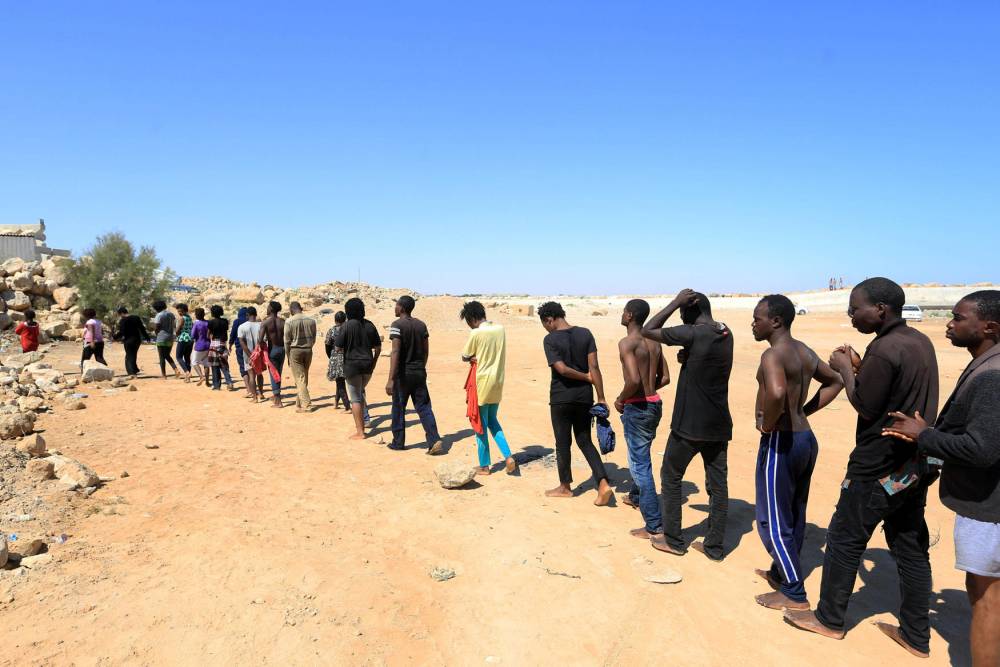Tunisian authorities have been involved in a slave trade wherein migrants have been sold to Libyan militias for as little as 13 dollars, a report by rights watchdogs said.
The report, presented on Wednesday to the EU Parliament, includes testimonies from 30 sub-Saharan migrants who have endured degrading treatment in Tunisia.
Dubbed State Trafficking: Expulsion and sale of migrants from Tunisia to Libya, the report zoomed in on cases of “the sale of human beings at the border by Tunisian police and military apparatuses, as well as the interconnection between the infrastructure behind expulsions and the kidnapping industry in Libyan prisons”.
The migrants have been sent to detention in Libya before they were sold.
“The price is based on the final value which the person being sold can generate through their ransom, the overall size of the group and its composition,” the report explains.
“Women cost more, because in Libya women are considered sex objects,” a witness told the researchers.
“They took us to the Libyan border. That’s where all the hatred in the world was unleashed. They beat us, they gave us electric shocks,” according to one of the testimonies.
The report also accused the European Union and Italy of directly enabling these human rights violations through their funding of North African border security forces. The EU has spent millions of euros training and equipping Libyan and Tunisian border guards to stop migration to Europe, but these funds are allegedly being used to detain, traffic, and sell migrants instead.
Tunisian police and Libyan militia reportedly refer to the captured migrants as “black gold”, in a chilling echo of the transatlantic slave trade.
Migrant mistreatment was fueled in Tunisia in 2023 when the President Kais Saied spoke of a “great replacement” accusing Sub-Saharans of a “criminal plan” to demographically replace Tunisians.
A crackdown on NGOs defending migrants’ rights followed with the closure of many associations such as Terre d’Asile Tunisia and the Tunisian Council for Refugees, were closed, while at least a dozen activists and researchers are currently jailed for working with migrants or expressing their opinions on the subject.



